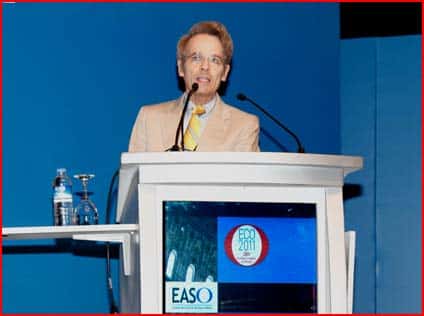
Not long ago, Dr. Pretlow was asked a series of questions by a young student whose area of interest is the impact of childhood obesity on the overall development of a child. Quite logically, she first inquired about the leading cause of obesity today, to which Dr. Pretlow answered:
Based on data from thousands of overweight teens and preteens, who use our website, comfort eating and resulting dependence (addiction) involving highly pleasurable foods is the root cause of obesity. Sedentary activity and lack of knowledge of healthy eating, the conventionally assumed causes, are unlikely causes. One study concluded that physical activity has little if any role to play in the obesity epidemic among children.
The study Dr. Pretlow refers to is the EarlyBird Diabetes Study, which is explained here by ScienceDaily, and has also been mentioned by Childhood Obesity News. He also repeats one of the most surprising things he has learned from his own research: that most kids who have communicated with the Weigh2Rock website are not helped to lose weight by information on healthy eating. They know the material. They can pass a test on the ideal diet for a young human. What they can’t do is pry themselves away from their problem foods.
Dr. Pretlow quotes a British dietician, Georgia Puckett, who points out that there are people who can drink without becoming alcoholics, and people who can take chocolate or leave it. Others are likely to get hooked on one or both of those substances. Puckett says:
The thing is that in the UK the food outlets are everywhere and you eat regardless of your hunger. You are not hungry but you eat, and that’s not for people that have an addictive personality, that’s for everyone. Imagine those poor souls who have some form of addiction, they do not have any hope. The idea that people are strong and can choose whatever they eat is nonsense as they succumb to their addiction.
Asked whether there is a connection between obesity and depression, or other psychological problems, Dr. Pretlow replied:
Yes, using food as a form of self-medication for depression and stress is a substantial cause of obesity. Further weight gain and resulting rejection and social isolation results in further comfort eating and more weight gain, a vicious cycle.
There is also, of course, a link between childhood obesity and many serious medical conditions — “type 2 diabetes, sleep apnea, non-alcoholic steatohepatitis (liver disease), high blood pressure, high cholesterol, heart disease, joint failure — just to name a few,” according to Dr. Pretlow. The role of the fast food corporations is explored, with Dr. Pretlow noting that the industry spends billions on food science research to make food absolutely irresistible. He says, “Any substance, which is that irresistible, is addictive, by definition.”
Perhaps the meatiest reply is to a question about who has the greatest potential to prevent childhood obesity, and what they (we) ought to do about it:
Publicizing that childhood obesity is not caused by nutritional ignorance or sedentary activity, but by an addictive dependence not unlike to cigarettes, alcohol, or even drugs, is the first step in curbing epidemic childhood obesity. The ‘obesity as an addiction’ research evidence is still embryonic, but it makes sense, and it should help us all understand why these kids struggle so much, even though they are so unhappy being obese. Obesity will continue to worsen unless our nation implements draconian measures, as in the case of a school in Newton, Massachusetts, that recently banned candy at the school for Valentine’s Day.
It created a ruckus among people who said that the school was trying to quash childhood. To combat childhood obesity, primary schools mean well by implementing fitness and nutrition lessons, but what about the research showing that neither physical activity nor nutrition information can accomplish the job? Dr. Pretlow says:
Not much is currently being done about the addiction root cause of obesity, although the Disney Corp’s banning of junk food advertising on their programs and NYC’s banning of large soft drinks are first steps in the right direction. The need to ban food advertising to kids and restrict the sale of junk food to them also has to be publicized.
Your responses and feedback are welcome!

 FAQs and Media Requests:
FAQs and Media Requests: 












3 Responses
Do you believe that if our government started subsidizing healthy fruits and veggies the way it does sugar, corn, wheat, dairy and cattle, parents would prefer it to processed foods as it would become so much more affordable?
That would be a necessary but not a sufficient condition. Sometimes, even an economic advantage isn’t enough to persuade people to change their minds and ways.